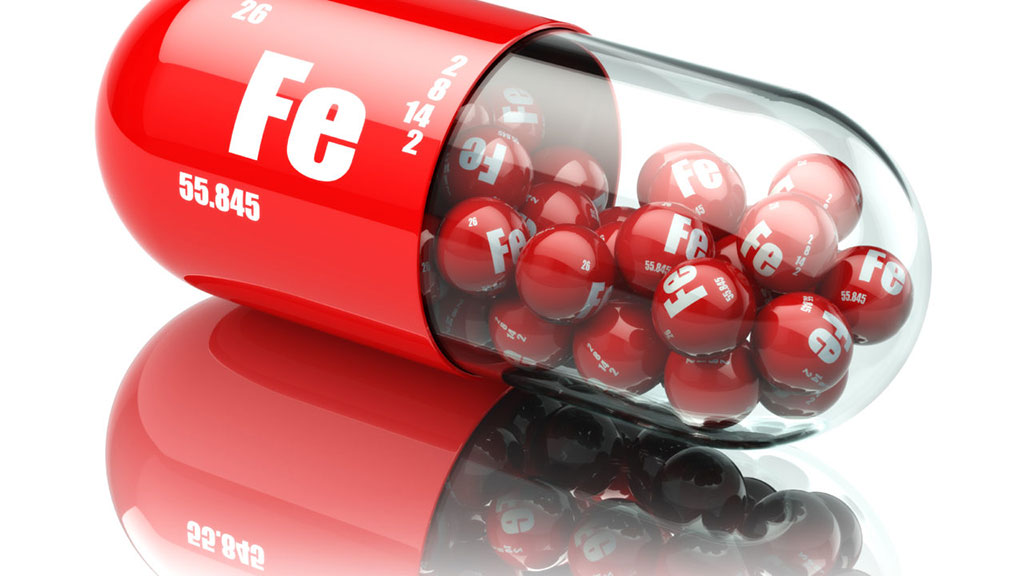Iron Reduces Heart Attacks in Hemodialysis Patients
|
By HospiMedica International staff writers Posted on 22 Dec 2021 |

Image: Administering Iron to dialysis patients can reduce incidental heart attacks (Photo courtesy of Shutterstock)
A new study suggests that intravenous (IV) administration of Iron may reduce mitral infarction (MI) in patients with chronic kidney disease (CKD) undergoing dialysis.
Researchers at the University of Glasgow (United Kingdom), King’s College Hospital (London, United Kingdom), and other institutions participating in the Proactive IV Iron Therapy in Haemodialysis Patients (PIVOTAL) trial, conducted a study involving 2,141 patients at 50 sites in the United Kingdom in order to investigate the effects of both high and low dose IV iron on MI in patients on hemodialysis. The researchers examined rates of MI, fatal or non-fatal MI, types of heart attacks, prognostic importance, and the effects on maintenance hemodialysis.
The results revealed that over 2.1 years of follow-up, 8.4% of participants experienced a MI. Rates of type one MI (classic plaque rupture with thrombus formation) were 2.5 times higher than type two MI (non-occlusive), and non-ST-elevation MIs were six times higher than ST-elevation MIs. High-dose IV iron reduced the composite endpoint of non-fatal and fatal MI by 31%, when compared with reactive low-dose IV iron. There was less effect of high-dose IV iron on recurrent MI events than on the time-to-first event analysis. The study was published on December 7, 2021, in Cardiovascular Research.
“Very few therapies investigated in people on dialysis have been shown to improve outcomes. We are delighted that high dose iron given into people veins reduces heart attacks,” said lead author Mark Petrie, of the BHF Cardiovascular Research Centre at the University of Glasgow. “Our hope is that this treatment is used around the world in people with kidney failure on dialysis.”
Iron deficiency anemia is a common complication of CKD, due to increased blood loss during dialysis resulting from frequent phlebotomies, blood remaining in the dialysis tubing, and gastrointestinal bleeding from a combination of gastritis and platelet dysfunction. In addition, Iron is recycled when red blood cells are phagocytosed by reticuloendothelial macrophages. This process is mediated by hepcidin, which is filtered and degraded by the kidney. Hepcidin levels are increased in CKD, severely depleting Iron availability for erythroid precursors.
Related Links:
University of Glasgow
King’s College Hospital
Researchers at the University of Glasgow (United Kingdom), King’s College Hospital (London, United Kingdom), and other institutions participating in the Proactive IV Iron Therapy in Haemodialysis Patients (PIVOTAL) trial, conducted a study involving 2,141 patients at 50 sites in the United Kingdom in order to investigate the effects of both high and low dose IV iron on MI in patients on hemodialysis. The researchers examined rates of MI, fatal or non-fatal MI, types of heart attacks, prognostic importance, and the effects on maintenance hemodialysis.
The results revealed that over 2.1 years of follow-up, 8.4% of participants experienced a MI. Rates of type one MI (classic plaque rupture with thrombus formation) were 2.5 times higher than type two MI (non-occlusive), and non-ST-elevation MIs were six times higher than ST-elevation MIs. High-dose IV iron reduced the composite endpoint of non-fatal and fatal MI by 31%, when compared with reactive low-dose IV iron. There was less effect of high-dose IV iron on recurrent MI events than on the time-to-first event analysis. The study was published on December 7, 2021, in Cardiovascular Research.
“Very few therapies investigated in people on dialysis have been shown to improve outcomes. We are delighted that high dose iron given into people veins reduces heart attacks,” said lead author Mark Petrie, of the BHF Cardiovascular Research Centre at the University of Glasgow. “Our hope is that this treatment is used around the world in people with kidney failure on dialysis.”
Iron deficiency anemia is a common complication of CKD, due to increased blood loss during dialysis resulting from frequent phlebotomies, blood remaining in the dialysis tubing, and gastrointestinal bleeding from a combination of gastritis and platelet dysfunction. In addition, Iron is recycled when red blood cells are phagocytosed by reticuloendothelial macrophages. This process is mediated by hepcidin, which is filtered and degraded by the kidney. Hepcidin levels are increased in CKD, severely depleting Iron availability for erythroid precursors.
Related Links:
University of Glasgow
King’s College Hospital
Latest Patient Care News
- First-Of-Its-Kind Portable Germicidal Light Technology Disinfects High-Touch Clinical Surfaces in Seconds
- Surgical Capacity Optimization Solution Helps Hospitals Boost OR Utilization

- Game-Changing Innovation in Surgical Instrument Sterilization Significantly Improves OR Throughput
- Next Gen ICU Bed to Help Address Complex Critical Care Needs
- Groundbreaking AI-Powered UV-C Disinfection Technology Redefines Infection Control Landscape
- Clean Hospitals Can Reduce Antibiotic Resistance, Save Lives
- Smart Hospital Beds Improve Accuracy of Medical Diagnosis
- New Fast Endoscope Drying System Improves Productivity and Traceability
- World’s First Automated Endoscope Cleaner Fights Antimicrobial Resistance
- Portable High-Capacity Digital Stretcher Scales Provide Precision Weighing for Patients in ER
- Portable Clinical Scale with Remote Indicator Allows for Flexible Patient Weighing Use
- Innovative and Highly Customizable Medical Carts Offer Unlimited Configuration Possibilities
- Biomolecular Wound Healing Film Adheres to Sensitive Tissue and Releases Active Ingredients
- Wearable Health Tech Could Measure Gases Released From Skin to Monitor Metabolic Diseases
- Wearable Cardioverter Defibrillator System Protects Patients at Risk of Sudden Cardiac Arrest
- World's First AI-Ready Infrasound Stethoscope Listens to Bodily Sounds Not Audible to Human Ear
Channels
Artificial Intelligence
view channel
AI-Powered Algorithm to Revolutionize Detection of Atrial Fibrillation
Atrial fibrillation (AFib), a condition characterized by an irregular and often rapid heart rate, is linked to increased risks of stroke and heart failure. This is because the irregular heartbeat in AFib... Read more
AI Diagnostic Tool Accurately Detects Valvular Disorders Often Missed by Doctors
Doctors generally use stethoscopes to listen for the characteristic lub-dub sounds made by heart valves opening and closing. They also listen for less prominent sounds that indicate problems with these valves.... Read moreCritical Care
view channel
Powerful AI Risk Assessment Tool Predicts Outcomes in Heart Failure Patients
Heart failure is a serious condition where the heart cannot pump sufficient blood to meet the body's needs, leading to symptoms like fatigue, weakness, and swelling in the legs and feet, and it can ultimately... Read more
Peptide-Based Hydrogels Repair Damaged Organs and Tissues On-The-Spot
Scientists have ingeniously combined biomedical expertise with nature-inspired engineering to develop a jelly-like material that holds significant promise for immediate repairs to a wide variety of damaged... Read more
One-Hour Endoscopic Procedure Could Eliminate Need for Insulin for Type 2 Diabetes
Over 37 million Americans are diagnosed with diabetes, and more than 90% of these cases are Type 2 diabetes. This form of diabetes is most commonly seen in individuals over 45, though an increasing number... Read moreSurgical Techniques
view channel
Miniaturized Implantable Multi-Sensors Device to Monitor Vessels Health
Researchers have embarked on a project to develop a multi-sensing device that can be implanted into blood vessels like peripheral veins or arteries to monitor a range of bodily parameters and overall health status.... Read more
Tiny Robots Made Out Of Carbon Could Conduct Colonoscopy, Pelvic Exam or Blood Test
Researchers at the University of Alberta (Edmonton, AB, Canada) are developing cutting-edge robots so tiny that they are invisible to the naked eye but are capable of traveling through the human body to... Read more
Miniaturized Ultrasonic Scalpel Enables Faster and Safer Robotic-Assisted Surgery
Robot-assisted surgery (RAS) has gained significant popularity in recent years and is now extensively used across various surgical fields such as urology, gynecology, and cardiology. These surgeries, performed... Read moreHealth IT
view channel
Machine Learning Model Improves Mortality Risk Prediction for Cardiac Surgery Patients
Machine learning algorithms have been deployed to create predictive models in various medical fields, with some demonstrating improved outcomes compared to their standard-of-care counterparts.... Read more
Strategic Collaboration to Develop and Integrate Generative AI into Healthcare
Top industry experts have underscored the immediate requirement for healthcare systems and hospitals to respond to severe cost and margin pressures. Close to half of U.S. hospitals ended 2022 in the red... Read more
AI-Enabled Operating Rooms Solution Helps Hospitals Maximize Utilization and Unlock Capacity
For healthcare organizations, optimizing operating room (OR) utilization during prime time hours is a complex challenge. Surgeons and clinics face difficulties in finding available slots for booking cases,... Read more
AI Predicts Pancreatic Cancer Three Years before Diagnosis from Patients’ Medical Records
Screening for common cancers like breast, cervix, and prostate cancer relies on relatively simple and highly effective techniques, such as mammograms, Pap smears, and blood tests. These methods have revolutionized... Read morePoint of Care
view channel
Critical Bleeding Management System to Help Hospitals Further Standardize Viscoelastic Testing
Surgical procedures are often accompanied by significant blood loss and the subsequent high likelihood of the need for allogeneic blood transfusions. These transfusions, while critical, are linked to various... Read more
Point of Care HIV Test Enables Early Infection Diagnosis for Infants
Early diagnosis and initiation of treatment are crucial for the survival of infants infected with HIV (human immunodeficiency virus). Without treatment, approximately 50% of infants who acquire HIV during... Read more
Whole Blood Rapid Test Aids Assessment of Concussion at Patient's Bedside
In the United States annually, approximately five million individuals seek emergency department care for traumatic brain injuries (TBIs), yet over half of those suspecting a concussion may never get it checked.... Read more
New Generation Glucose Hospital Meter System Ensures Accurate, Interference-Free and Safe Use
A new generation glucose hospital meter system now comes with several features that make hospital glucose testing easier and more secure while continuing to offer accuracy, freedom from interference, and... Read moreBusiness
view channel
Johnson & Johnson Acquires Cardiovascular Medical Device Company Shockwave Medical
Johnson & Johnson (New Brunswick, N.J., USA) and Shockwave Medical (Santa Clara, CA, USA) have entered into a definitive agreement under which Johnson & Johnson will acquire all of Shockwave’s... Read more













